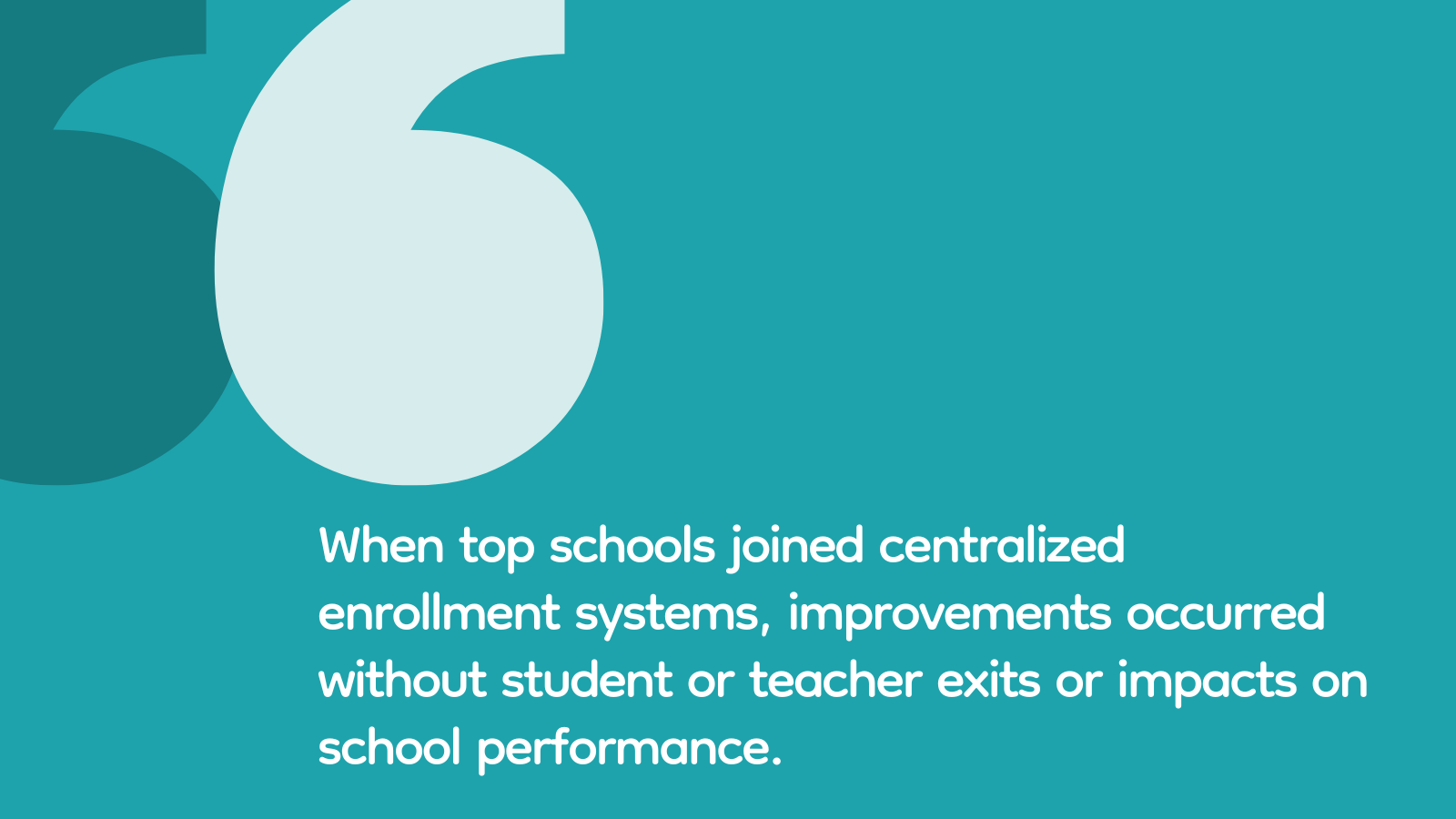School choice has always kind of seemed like a pie in the sky idea. Envision a school system with diverse district-wide options, all available through a centralized, streamlined application process. This isn’t just a distant reality, as researchers recently found this idea of choice was possible. As explored in a recent study and detailed examination of New Orleans’ Unified Enrollment (UE) system’s impact, researchers highlight significant strides toward inclusivity without compromising school performance.
Centralized enrollment systems promote diversity in school choice programs
You may be wondering what exactly a centralized enrollment system really means (as I did in my economics of education class!). It’s like a “one-stop shop” that simplifies the school choice process for families applying to various schools. Instead of sending separate applications to each school you’re interested in for your child, you fill out just one application. On this single form, parents list the schools they like in the order they would prefer them. Here’s what the researchers found when using more of these “one-stop shops” in New Orleans:
Key findings from Lincove and Valant (2024):
- Increased diversity. Following participation in centralized enrollment systems, schools with higher White enrollments saw steady increases in Black and other non-White student numbers.
- Stable school performance. The introduction of a centralized enrollment system did not detrimentally affect the schools’ performance ratings or accountability measures.
- No evidence of white flight. Despite concerns, schools that diversified through centralized enrollment systems did not experience significant decreases in White student enrollment.
- Enhanced school choice. The centralized enrollment system streamlined applications, enabling parents to easily apply to multiple schools simultaneously, aiding diversification.
Can we trust this research?
Not all research is created equal! Here’s what our We Are Teachers “Malarkey Meter” says when it comes to this publication, based on four key factors.
- Peer-reviewed? Yes, this study has undergone several rounds of peer review, ensuring that the findings have been examined and gone through with a fine-tooth comb.
- Sample size: The research includes a comprehensive analysis of schools in New Orleans over multiple years (2007–2020), providing a robust data set for examining trends over time. They examined enough students and schools for statistical power as well.
- Trustworthy sources: Jon Valant, an expert and director in his field, and Jane Arnold Lincove are both strong researchers who are reputable in the field of education policy. Plus, both researchers published in the American Educational Research Journal. This journal has a 1.5% acceptance rate, so they only accept the best!
- Methodology: The researchers used a comparative interrupted time series design (I know, right?! What?), a strong statistical approach that helps isolate the effects of the centralized enrollment systems from other changes occurring over the same period. They analyzed this data in the most rigorous and causal way possible. Two thumbs up!
What does this mean for teachers?
The transition to a centralized enrollment system like New Orleans’ could bring about opportunities for school demographics to shift, yet allow the core objectives of teaching and learning to remain steadfast. This enrollment evolution aims to diversify student populations, enriching the school experience without compromising quality.
Dr. Valant told We Are Teachers, “If you’re teaching in a charter school, having your school participate in your city’s centralized enrollment system could be a good way to make the school more visible and accessible to families.” Dr. Lincove’s reflections add further:
When New Orleans’ top performing schools entered the unified lottery, we saw improved racial integration without triggering the exit of current students or teachers and no negative effects on school performance indicators or parent demand. This evidence should alleviate parent anxiety that entry into centralized enrollment systems might negatively affect current students in high-performing schools.
Jane Arnold Lincove
Embracing centralized enrollment systems offers an opportunity to engage with a more diverse and inclusive school environment, where equity in school choice transitions from a pie in the sky to a tangible reality. This shift can not only uphold high academic standards but also enrich student experiences, reflecting a broader spectrum of cultural backgrounds and perspectives. The findings from the New Orleans study serve as evidence to the benefits of centralized enrollment systems, showing that schools that open their doors more widely invite an eager mix of students ready to learn and succeed.
